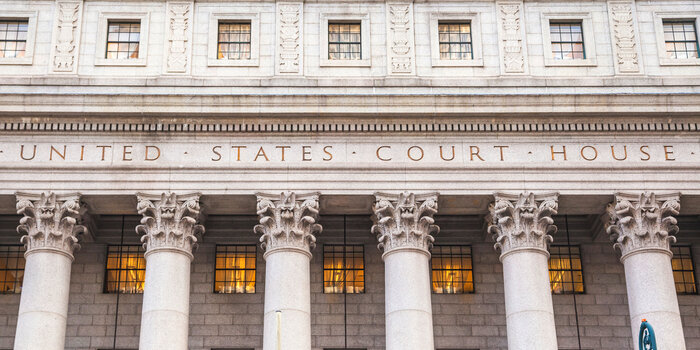State courts hear 95 percent of all cases. But the promise of evenhanded justice in these courts is increasingly under threat.
Special interest groups routinely pour large sums into state supreme court races – most of it dark money where donors are undisclosed. Most state judges are chosen in a way that lacks safeguards to protect their independence from special interests or political pressure, threatening their ability to apply the law fairly and without fear of retaliation.
And the rules governing when judges should step aside from hearing cases haven’t kept up with the realities of high-cost judicial elections. This means judges often hear cases involving big contributors — an obvious conflict of interest. It’s little wonder that 9 in 10 Americans — and nearly half of state judges — think campaign cash affects judicial decisions.
At the same time, in states across the country, partisan lawmakers have stepped up efforts to rein in judges whose rulings they don’t like, manipulate the composition of the courts, or otherwise politicize the bench.
And our courts are still a long way from reflecting the diversity of the communities they serve, threatening their legitimacy in the eyes of the public and excluding vital perspectives from judges’ deliberations.
Americans need to have confidence that the courts will deliver equal justice, and that rulings will be independent and fair-minded. That’s why the Brennan Center advocates for reforming how judges are selected, revamping recusal rules, and adopting judicial public financing, to protect against special interest influence and political pressure. We also sound the alarm when lawmakers try to weaponize the courts and fight efforts to undermine their independence. We track and analyze judicial elections. And we study the demographics of state and federal judiciaries and promote measures to help build a more diverse bench.














